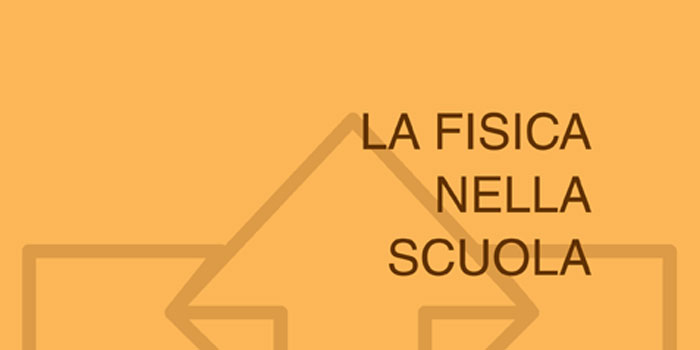Articoli rivista
 Anno XXIII - n.1 - gennaio/marzo 1990
Anno XXIII - n.1 - gennaio/marzo 1990 Le rappresentazioni degli studenti nell’insegnamento della fisica – un programma didattico (traduzione di A. Fichera)
In recent years work on students’ conceptions attracted the attention of people engaged in doing research on difficulties in learning physics. This paper shows that the origin of this kind of work can be traced back to a didactical programme starting many tears ago. […]
 Anno XXXVI - n.1 - gennaio/marzo 2003
Anno XXXVI - n.1 - gennaio/marzo 2003 Le risorse degli studenti per apprendere la fisica di base
With good reason, physics education research has focussed almost exclusively on student difficulties and misconceptions. This work has been productive for curriculum development as well as in motivating the physics teaching community to examine and reconsider methods and assumptions, but it is limited in what it can tell us about student knowledge and learning. […]
 Anno XXXVI - n.1 - gennaio/marzo 2003
Anno XXXVI - n.1 - gennaio/marzo 2003 Le rotazioni elettromagnetiche
Two easy experiments devised to help undergraduate students understand the concept of non-conservative fields are suggested. The idea is inspired by the early work of Faraday on the interactions between magnets and current carrying elements. In the first experiment two magnets rotate around a linear conductor; […]
 Anno XXIV - n.3 - luglio/settembre 1991
Anno XXIV - n.3 - luglio/settembre 1991 Le trasformazioni energetiche (Scuola media statale “S. Taricco”, Cherasco CN)
This article describes an entry to the Bonacini Annual Contest lor experimental work in the school. The theme of the Contest was “Energy Transformations”. In their practical work, the 12-year old pupils built simple appliances in which different kinds of energy transfers took piace. […]